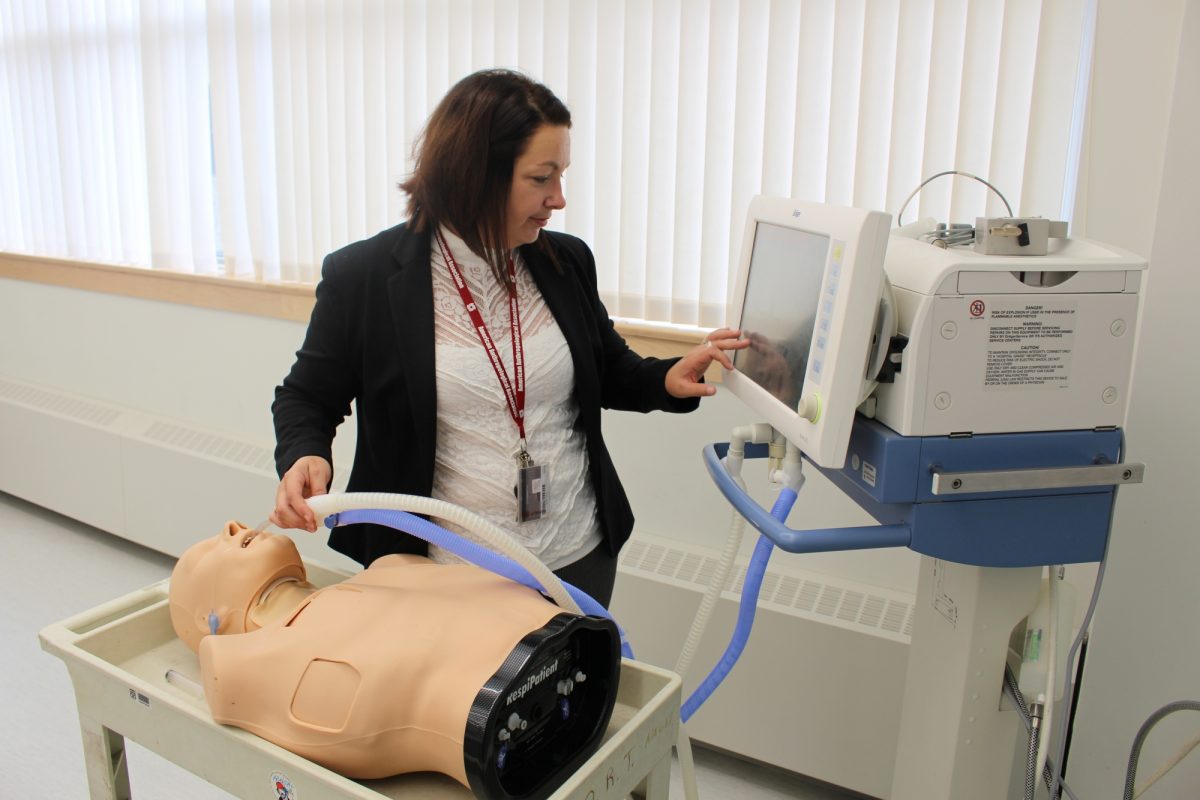
Fresh air
Dr. Louise Chartrand is breathing new life into the field of respiratory therapy.
The new assistant professor in the College of Rehabilitation Sciences is leading the way as one of the only tenure-track academics in Canada in a respiratory therapy program.
“It’s exciting because it’s new and we can make it our own,” she says, noting that she knows of only one other respiratory therapist in the country who is a university professor.
As a pioneer, Chartrand had to create her own unique path to obtaining a PhD.
Raised in the Franco-Ontarian town of St. Albert, Ont., she earned a diploma in respiratory therapy in 2001 at Ottawa’s La Cité collégiale. Her academic career began out of tragedy when her father died in 2004, and it shook her to the core. She turned to university to reflect and find answers.
She enrolled at the University of Ottawa to complete a bachelor of arts while continuing to work as a respiratory therapist. With an interest in human behaviour, she pursued a double major in psychology and anthropology.
A passion for these two disciplines led her to complete her master’s in 2011 and her doctorate in 2018 in sociology under the supervision of Julie Laplante, a medical anthropologist.
“I’m excited to be part of the Rady Faculty of Health Sciences and continue my interdisciplinary approach to studying how society intersects with respiratory health,” she says.
For her PhD research, Chartrand undertook a six-month ethnographic study (mixed observation and interviews) in the intensive care unit (ICU) of an Ontario hospital, where she looked at the decision-making process around ventilators.
She discovered that the work respiratory therapists performed often went unnoticed.
When Chartrand asked family members who was responsible for discontinuing the ventilator, they would say it was a nurse if it was a female respiratory therapist and a respirologist if it was a male.
“It’s just sad to see that members of a profession who make such a difference in the ICU and are involved in decision-making, and provide valuable information to the doctors, are basically ghosts,” she says.
Chartrand feels driven to raise the profile of respiratory therapists, and to study the connections between sociology, anthropology and respiratory therapy that made her PhD project innovative. She also plans to explore ways to improve patient outcomes, especially for patients with chronic lung disorders.
Her research interests include an interdisciplinary approach to death and dying.
She recently published a paper, “Individualism and the Decision to Withdraw Life Support,” in the journal Societies.
In it, she discusses cases in which a patient is unconscious or otherwise incapable of giving legal consent, and a proxy – usually a family member – has the agonizing burden of deciding whether to withdraw respiratory life support.
Chartrand proposes a form of collective decision-making in such situations.
As a researcher with the Children’s Hospital Research Institute of Manitoba, she plans to study the same kind of decision-making in a pediatric setting. “Imagine how difficult it must be for a family member to decide to withdraw life support from a child,” she says.
Chartrand sees the U of M College of Rehabilitation Sciences as an excellent fit for her because it offers Canada’s only English-language, entry-to-practice undergraduate degree program in respiratory therapy.
Her mission is to help create a body of literature written by respiratory therapists, for respiratory therapists. But for that to occur, more people in the profession need to be involved in research, she says.
Chartrand is seeking respiratory therapists to pursue a master’s or PhD. She will offer graduate students the opportunities she didn’t have to engage in research and further their studies.
“One of my big motivators is that I know how difficult it was for me to obtain my PhD,” she says. “I would definitely like to ease the process and open up opportunities to other respiratory therapists.”






